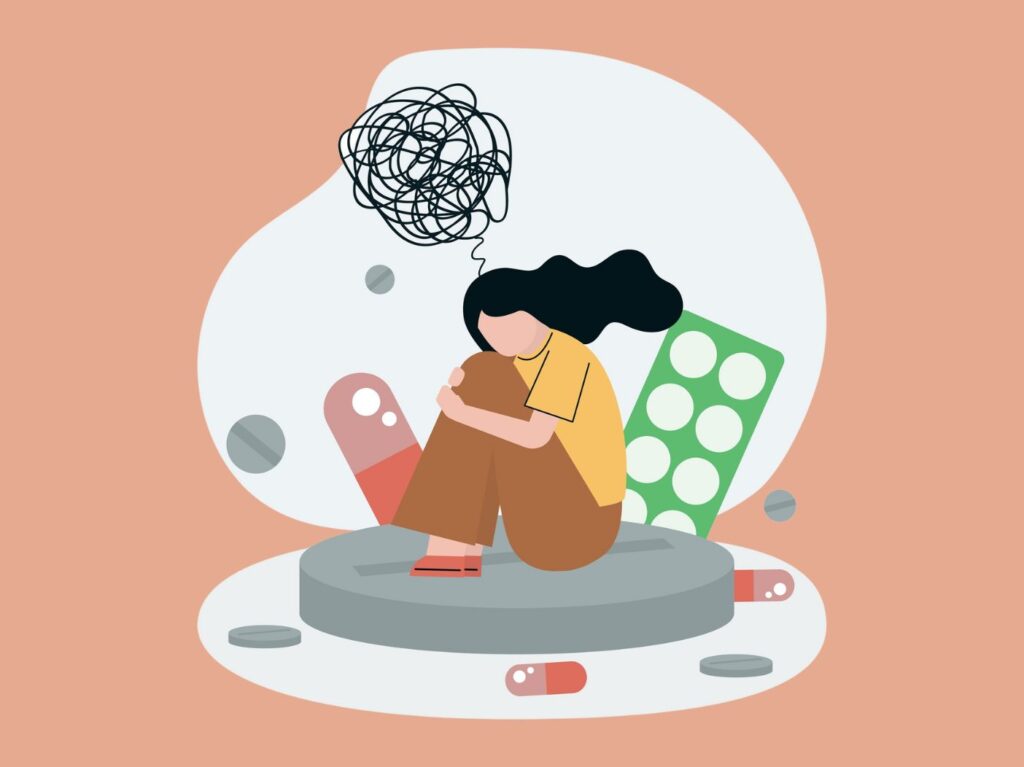
In 1798, Sir Alexander Crichton was the first to notice what would become attention deficit hyperactivity disorder (ADHD). In true patriarchal fashion, women were not allowed to join the conversation for a mere 224 years. Female diagnoses were often misunderstood or ignored for the two centuries before.
Over the past few years, ADHD has seen a dramatic rise in adult females diagnosed. This disorder didn't suddenly appear in women in their 30s or beyond. It was hiding in plain sight all the time.
ADHD symptoms and treatment were created in a male-dominated medical system. Unfortunately, this male-centric view has affected the accuracy and efficacy of women's healthcare until now.
ADHD Cases are on the Rise in The U.S.
The Attention Deficit Disorder Association (Non-Profit Organization) helps adults with ADHD to manage their symptoms. Between 2019 and 2021, the organization saw its membership increase by more than doubling. This could have been an attempt at pandemic isolation. However, a study published by the JAMA Network Open shows otherwise.
According to the study, adult ADHD diagnoses rose by 43% annually between 2007-2016. The CDC data shows a staggering 344% increase in prescriptions for ADHD medication by women aged between 15 and 41 from 2003 to 2015.
Stats such as these from 2006 showed that ADHD was more common in males (5.4%) than it is in females (3.2%). We know today that this may not have been true. Doctors were simply overlooking symptoms in females.
RELATED : A Half of All Women Will Have A False Positive Mammogram
How ADHD affects the Brain
ADHD is a neurodevelopmental condition that affects pre-frontal cortex, limbic system and other areas. ADHD sufferers have trouble with attention, organization and memory as well as emotional regulation. ADHD brains also have low levels norepinephrine (a neurotransmitter for dopamine, the "pleasure-and-reward" chemical).
There are three types of ADHD: hyperactive-impulsive, inattentive, or a combination. Hyperactive-impulsive is the easiest to spot (think squirming, fidgeting, etc.) This is the most common diagnosis for males. It is more difficult to diagnose and, as you might guess, it is the most common type of ADHD in female patients.
Inattentive ADHD symptoms can often be silent. These symptoms include difficulty juggling multiple tasks, sensory overload, sensory overload, memory problems, disorganization, memory problems, memory issues, disorganization, memory problems, planning difficulties, and trouble focusing. It's also more difficult to process information if it's not interesting, especially if you have ADHD.
Why is female ADHD so easy to miss?
This is the multi-answer, million-dollar question. First, it is harder to spot women with internalized ADHD symptoms. It is difficult to see how women express impulsivity, which can be a more severe symptom. Female ADHD may manifest as excessive talking, self-harming behaviors, poor self-discipline and inability to sustain healthy relationships.
Female ADHD patients may also have comorbid mental disorders such as anxiety, depression, and obsessive compulsive disorder. These symptoms might be noted by doctors and treated first. These comorbidities may be distinct from ADHD but can also result in suppressing or overcompensating for symptoms.
Women with ADHD are encouraged to be friendly, flexible, and capable managing stress discreetly. ADHD women try to hide their symptoms by working too hard, overextending themselves impulsively, or looking for a way to increase their dopamine levels through food, sex or other substances.
ADHD that is not treated can worsen symptoms such as anxiety, depression, or OCD. Patients with ADHD are often less self-confident than their male counterparts. They are quick to make friends but difficult to keep them. They are more likely to have volatile, sometimes abusive, romantic relationships.
The Hidden Symptoms of Sexism
For decades, women have been left undiagnosed because of the stereotype that ADHD is more common in boys than it is in girls . They suppress and suffer from their symptoms and internalize them as common disorders instead of easily treated.
This is true for many aspects of women's healthcare, including menopause and perimenopause. Low estrogen levels and ADHD are directly connected, so it is important for women in their midlife to seek the appropriate treatment, medication or therapy.
ADHD can be confused with some of the most complicated and misunderstood concepts in well-being, including mental wellness, trauma response as well as hormonal regulation and environmental influence. ADHD can have a direct and potentially harmful effect on the lives of people. Women should have the chance to get accurate and effective diagnosis and treatment.
RELATED In the U.K., Hormone Replacement Therapy will be available over-the-counter We Wish the U.S. would Follow Our Lead in September
The knee-jerk "hysteria", diagnosis of late 1800s, to the 1950s benzo prescriptions for women's health have come a long ways. We still have a lot to do. ADHD is only one example of women's healthcare being neglected, misdiagnosed or mistreated.
This rapid rise in ADHD diagnoses is a sign of progress. Female patients are being heard by medical professionals. Women are also beginning to advocate for their own health and wellbeing.
It is time to end the sexist tradition that women suffer in silence. We can't wait for the women's health boom to replace it.
More from Suggest
-
New Guidelines Are Designed to Prevent Obesity in Midlife Women. However, the Conclusion Is a Little Controversial
-
"F*cking Ridiculous!" Scotland is championing menopause, but has one big mistake
-
A Study shows that more women are using cannabis to treat symptoms of menopause. But is it safe?
-----------------------------------
By: M. Davis-McAfee
Title: Sharp Increase In Adult Women Being Diagnosed With ADHD Shows How Sexism Can Impact Our Health
Sourced From: www.suggest.com/increase-adult-female-adhd-sexism/2674773/
Published Date: Fri, 23 Sep 2022 15:45:00 +0000
Read More
.png) SportsFashionPoliticsVideosHollywoodPrivacy PolicyTerms And Conditions
SportsFashionPoliticsVideosHollywoodPrivacy PolicyTerms And Conditions
